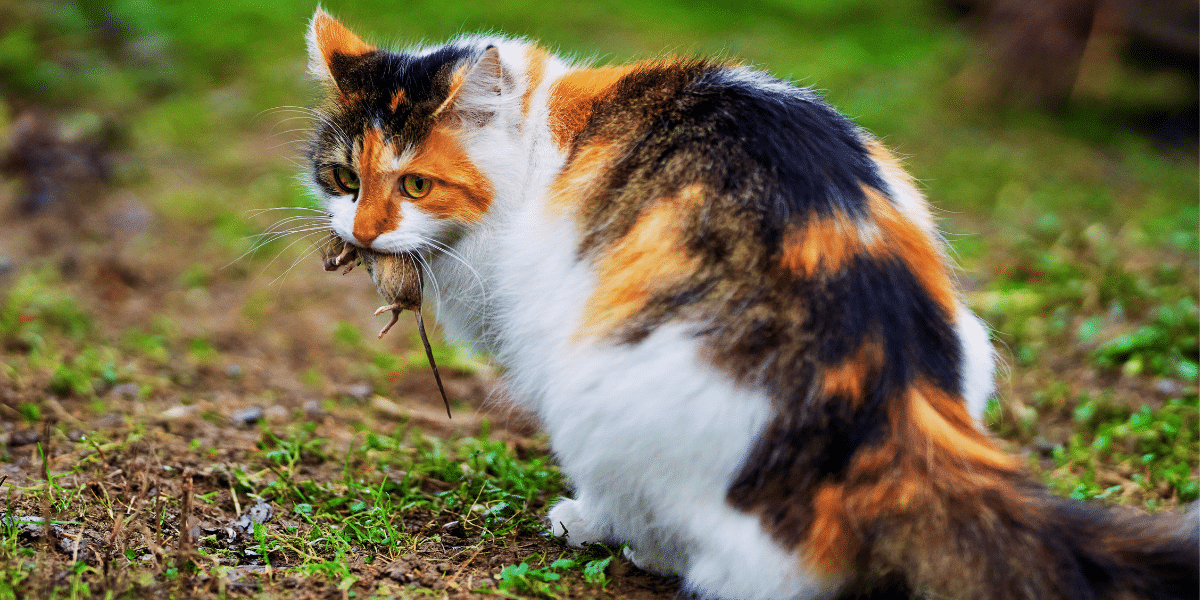When we think of gifts, we might hope for something shiny wrapped with a big red bow, or maybe a gift card to our favorite café. However, for many cat owners, the reality involves receiving a dead mouse or a disheveled bird as a gift from their feline friends. If you’ve experienced this delightful yet gruesome surprise, you might be wondering why your cat brings home dead animals.
It’s important to understand that cats, regardless of whether they live indoors or outdoors, are instinctively hunters. Even though they might have a full bowl of food waiting for them at home, their predatory instincts remain strong. This behavior is not reflective of a lack of care or consideration; instead, it stems from their evolutionary background.
Cats were domesticated over 10,000 years ago, and they have maintained their instinctual desire to hunt. Their sharp retractable claws and keen senses make them natural predators, regardless of environmental factors. When a cat catches a mouse or a bird, the hunt itself is often more crucial than the act of eating what they catch.
While it might feel a bit disheartening to have your beloved pet present you with a gory prize instead of a thoughtful gift, it’s essential to recognize the genuine expression of love behind this instinctual behavior. For many domestic cats, **bringing dead prey home** can be perceived as a form of care. Here’s why:
**Learning by Example**
Female cats, particularly those who have been spayed, are often the primary perpetrators of this behavior. This stems from their natural instincts as mothers to teach their kittens how to hunt. By bringing home prey, they hope to provide examples for their young, even if their offspring are human.
If your female cat presents you with her catch, she likely views you as part of her family unit and feels a desire to help you learn essential survival lessons. This behavior is endearing in its own right, showcasing that she cares for your well-being.
**Indoor Cats are No Exception**
Even indoor kittens, who may have never set paw outside, display these hunting behaviors. They adapt to their surroundings and often replicate their hunting instincts through play. This could include capturing catnip mice, pouncing on strings, or tussling with anything that moves.
In the absence of real prey, indoor cats compensate by using toys, scraps of paper, or even household items as substitutes for the real thing. So, if you find a sock at your doorstep or a ball of yarn delicately placed in your lap, that behavior mirrors a cat bringing home a mouse or a bird.
**A Balanced Perspective**
While it’s vital to appreciate the thought process behind these gifts, it’s equally important to recognize the ecological implications. A study has shown that cats in the United States kill billions of small animals each year. Such alarming statistics have prompted some communities to consider the impact of outdoor cats on local wildlife populations.
To reduce this type of gift-giving, consider implementing certain strategies. You can attach a bell to your cat’s collar, which may give prey a chance to escape. Furthermore, providing plenty of toys and engaging in play sessions can channel their hunting instincts more acceptably.
If your cat presents you with her catch, remember, it reflects her love and familial bonds. Think of it as a proud offering of her hunting prowess, and take solace in knowing that she considers you an important part of her world.

Ultimately, understanding this behavior can enhance the bond between you and your feline companion, providing insight into the mind of one of nature’s most fascinating hunters.






Facebook Comments